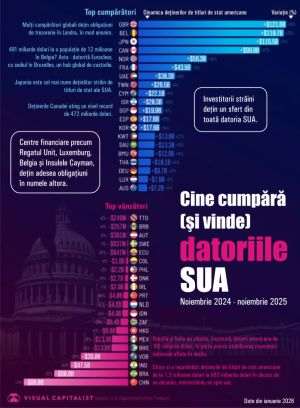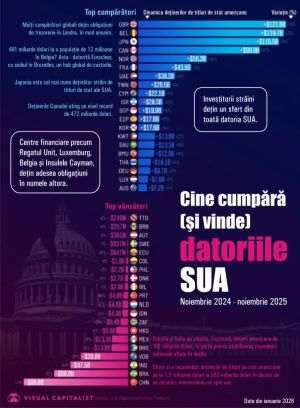The university environment reacts to the scandal that arose after the revelations related to the inappropriate behavior of some professors. The President of the National Council of Rectors, Sorin Cîmpeanu, announced that a working group will develop, before the start of the 2024 - 2025 academic year, a Good Practices Guide that will present recommendations regarding the most rigorous national and international standards, procedures and practices in the field of inappropriate behavior in the university environment: "Following the meeting of the National Council of Rectors, convened as an emergency this evening, it was decided to set up a working group to develop, before the start of the academic year 2024 - 2025, a Good Conduct Guide practices to present recommendations regarding the most rigorous national and international standards, procedures and practices in the field of inappropriate behavior in the university environment. The working group includes experts from 9 universities, as well as representatives of the 5 representative student alliances - ANOSR, UNSR, USR, LSRS and FASMR". The prosecutor's office attached to the District Court 1 urged the SNSPA students who were allegedly victims of Professor Alfred Bulai to contact the prosecutors, the investigators claiming that they will ensure their protection and protect their identity. The Capital Police opened a criminal case regarding the use of the position for sexual purposes in the case of Professor Alfred Bulai. According to a journalistic investigation carried out by the Snoop website, Alfred Bulai, a teacher at SNSPA, allegedly sexually harassed several female students. On the other hand, the Ministry of Education states that it does not tolerate, in the education system, any deviation that could affect human integrity and dignity and supports the efforts of the National School of Political and Administrative Studies (SNSPA) to clarify and resolve the issues reported in the public space, which concerns the unethical behavior of a university teaching staff. The University Ethics and Management Council (CEMU) will initiate checks at the level of higher education institutions regarding the cases that involved elements of sexual harassment (or similar acts) and how they were managed at the level of the university ethics commissions and the results of the actions taken at the institutional level, including by reporting on prevention measures. At the same time, the audit of the university ethics commissions will also include the presentation of initiatives at the institutional level for the promotion of fundamental ethical values, such as academic freedom, respectively the fight against discrimination, abuse and harassment of any type. The Minister of Education, Ligia Deca declared: "Sexual harassment is a scourge, which has disastrous consequences both for the victims and for the professional climate in any organization. When those who harass are also in positions that assume trust and authority, such as that of teacher, the impact is all the more devastating. I appreciate the courage of all those who have stepped forward and told the truth and I encourage all those who have been victims of abuse of any kind to report them. As a minister, I have constantly pursued the improvement of the legislation in the field of ethics and deontology in the educational environment. I request that any deviation from the norms of ethics and integrity be severely sanctioned, ensuring the protection of victims and post-traumatic assistance. We will also act, together with the competent institutions with the university environment, in order to increase prevention actions in the educational system". The Ministry of Education specifies that, for the first time, in the new Higher Education Law no. 199/2023, clear definitions were provided for acts of sexual harassment and psychological violence, and all higher education institutions have the obligation to comply with the new provisions. Additionally, the Ministry of Education claims that it has continued to improve the legislation in the field of university ethics and deontology, by: adopting the Framework Code of University Ethics and Deontology, which prohibits any kind of harassment, including sexual harassment, along with other forms of exploitation, establishing the obligation as higher education institutions to regulate an internal framework for the prevention of deviations from national or internal norms regarding university ethics and deontology, establishing the obligation of university ethics commissions to carry out, starting from the academic year 2024-2025, preventive activities regarding the violation of norms of ethics and deontology, establishing the obligation for universities to develop operational guidelines detailing the legal and administrative procedures regarding the approach and resolution of violations of university ethics and deontology norms, as well as the abusive behavior of members of the university community, an obligation regulated by the Ethics Framework Code and university ethics. The representatives of the Ministry of Education emphasize that sexual harassment, along with any form of harassment, is considered a deviation from the ethical and deontological norms regarding respect for the human being and dignity, considering the fact that they destroy the dignity of the direct beneficiaries of the right to education and the prestige of the profession, according to provisions of the Higher Education Law no. 199/2023 and of the framework code of university ethics and deontology. The Ministry reiterates that students have the right to benefit from a safe and healthy learning environment, including by facilitating access to information about physical, mental health, well-being and counseling services, according to the Code of Student Rights and Obligations, approved by order of minister in 2024.
University environment, measures against inappropriate behavior of teachers
O.D.
English Section / 2 august 2024

Photo source: facebook / Sorin Cîmpeanu











































